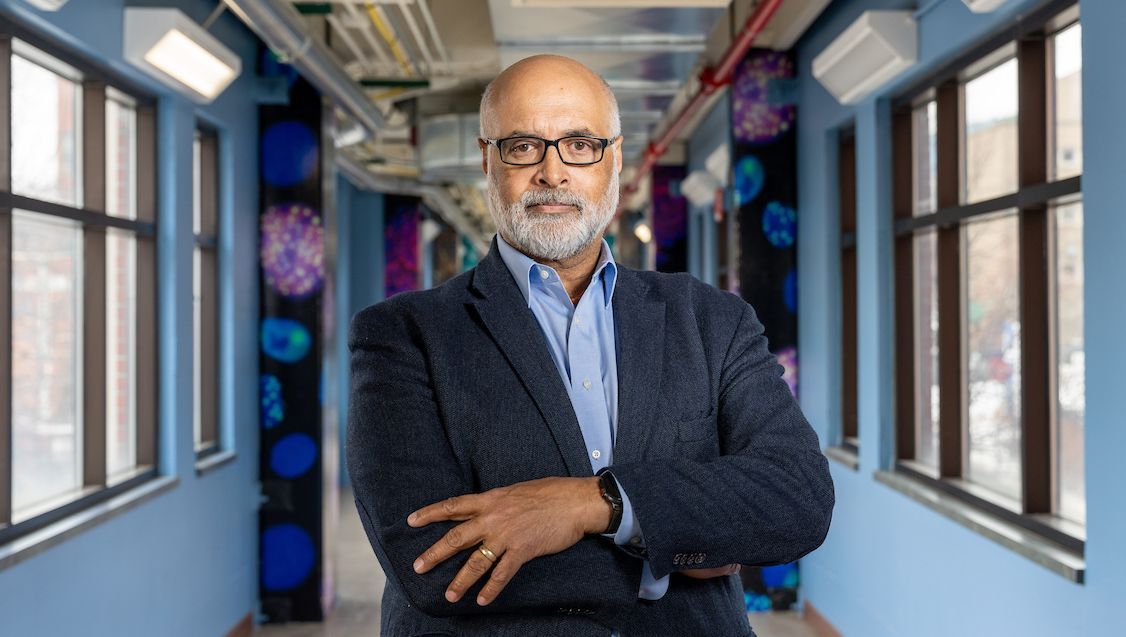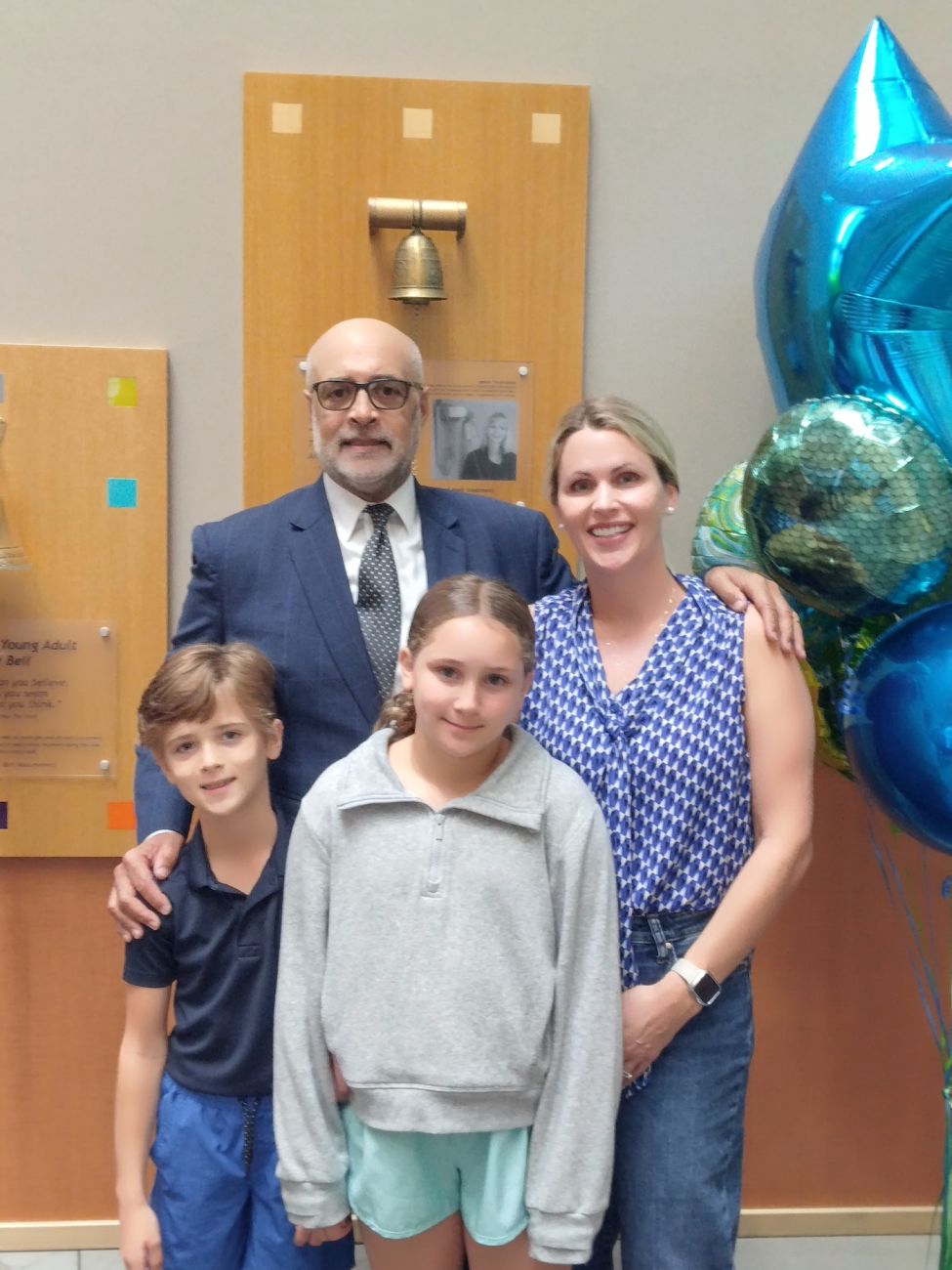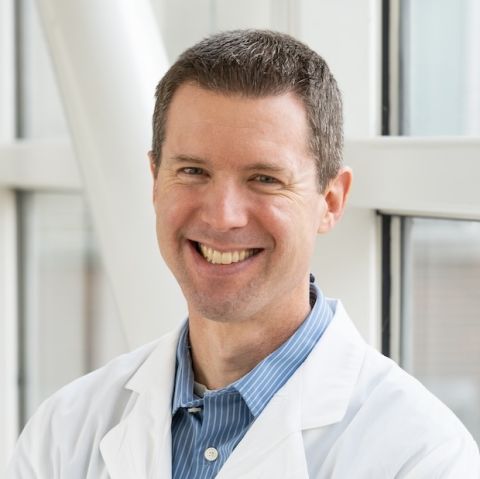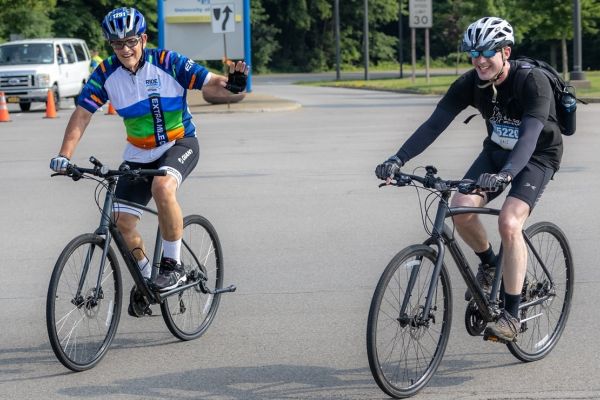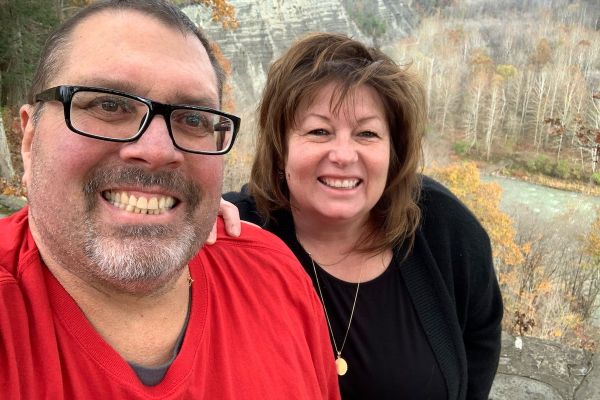Clinical trial for multiple myeloma offered a new promising approach
Ask Adam Perry why he’s so supportive of Roswell Park Comprehensive Cancer Center and he answers the question directly, passionately and succinctly.
“Roswell Park saved my life and gave me two other ones.”
It’s a line he borrows from a recent radio commercial, voiced by a woman whose difficult cancer was treated by Roswell Park and allowed her to pursue her dream of having a child. The same is true for Adam, an attorney in Buffalo, who is now a two-time cancer survivor.
Initially, he was treated for bladder cancer by John DeBerry, III, MD, a urologist who now practices as part of the Roswell Park Care Network at our Wehrle Drive location. In 2012, when there was a worldwide shortage of one of the important drugs Adam needed for treatment, he was able to make a call to Roswell Park and learned he would be able to access the medication if he became a patient here.
“That’s how I first came to know Roswell Park,” says Adam, who first beat bladder cancer that year, but had a recurrence a year later.
“Roswell Park was an important part of saving my life and providing me with care at that time,” he explains. “After that, I was in my early 50s and I decided that something I hadn’t done before in my life, but wanted to do, was to have kids. I got married and had two kids, they’re now 9 and 10 years old.”
A second go-round with cancer
In 2022, however, he began having unusual pains throughout his body and severe radiculopathy and neuropathy in his left arm and left leg. “My left arm went completely numb and I had excruciating pain throughout my body,” he recalls. “Just walking from my parking place to my office or up and down the stairs at home were very painful tasks.”
Several doctors examined Adam and prescribed anti-inflammatory medicines but nothing helped. Another suggested an MRI of his neck, but that test was delayed for several months because, he says, it was not considered medically necessary. Instead, he was sent for physical therapy in the hopes of resolving the symptoms.
Adam was still making regular survivorship visits to Roswell Park for routine tests and scans associated with his bladder cancer 10 years prior, and during a routine urological scan, a technician saw a spot on his pelvic bone. From that spot, which was biopsied at Roswell Park within days, along with the analysis of blood tests also done here, it was suggested he might have multiple myeloma, a blood cancer caused by the out-of-control production of plasma cells.
The diagnosis was confirmed by a bone marrow biopsy and PET scan, and he was ordered to immediately stop his physical therapy which posed the risk of fracturing a neck vertebra which was engulfed in a large myeloma lesion.
“Instead of having an MRI that would have showed a fractured T-1 vertebrae and some deterioration in another vertebra and a very gnarly myeloma lesion on that vertebra, I was doing PT, which could have snapped that vertebra in half,” Adam says. “I had 60% coverage on my T-1 vertebra from a myeloma lesion and 16 or 17 other lesions throughout my body, which is where the extreme pain was coming from.”
You have time for a second opinion
Treatment for multiple myeloma has evolved so that stem cell transplant and CAR T-cell therapies increase your chances of remission — Roswell Park provides these advanced treatment options.
Exploring clinical trials for multiple myeloma
Multiple myeloma lesions are areas of weakness inside the person’s bones, explains Jens Hillengass, MD, PhD, Chief of Myeloma at Roswell Park. “Very rarely does it go outside of the bones because myeloma cells are very dependent on the microenvironment that is inside our bones, in the marrow.”
Adam qualified for a clinical trial and was happy to enroll to help both himself and future Roswell Park patients. Under Dr. Hillengass’ care, he received eight cycles of a combination of targeted and immunotherapy consisting of three drugs.
“I started the clinical trial on December 29, 2022, just four days after the Christmas blizzard, where I was at home and really at the height of distress. I had an episode where I stopped breathing and was having coughing fits to a degree — and remember, I have a fractured vertebrae engulfed by a myeloma lesion and all other kinds of problems,” he says. “Roswell Park is not just some place where you get treated. This is world-class. There’s a world-class physician in charge of the unit. The whole hospital in general, you just can’t get better care. It’s not like any other place where they’re dabbling in cancer care. This is where you really want to be to understand all your options.”
“A new lease on life”
In September 2023, he completed his nine-month course of chemotherapy in the clinical trial and was advised by his care team in the myeloma clinic that he was in remission. A few months later, with his family by his side and surrounded by some of his prominent friends, Adam rang the bell, indicating he has no evidence of multiple myeloma. His tests continue to come back clear, but he knows that it will return one day, as multiple myeloma currently cannot be cured. It’s also a disease more commonly diagnosed in African Americans, Dr. Hillengass says, though the reasons why are unclear.
Roswell Park remains a special place for Adam and his family and he encourages anyone with a cancer diagnosis to make an appointment here.
“For a lot of people, they’re facing a death sentence; this is the best place to be to try and stop that,” he says.
“For other people, no matter how serious it is, if there’s a shot at saving your life and giving you some semblance of being who you were before cancer, come to Roswell Park. Surviving cancer in the right treatment environment can give you a new lease on life. It can give you a completely new way to see what happens. You can do things from this journey that you never thought you could before.”
Editor’s Note: Cancer patient outcomes and experiences may vary, even for those with the same type of cancer. An individual patient’s story should not be used as a prediction of how another patient will respond to treatment. Roswell Park is transparent about the survival rates of our patients as compared to national standards, and provides this information, when available, within the cancer type sections of this website.
